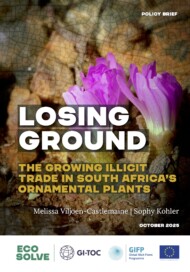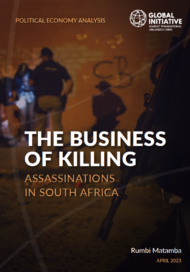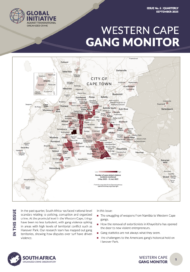Posted on 15 Oct 2025
South Africa’s organised crime economy is not just the work of gangs and enterprise kingpins. It endures because a grey layer of professional enablers –lawyers, accountants, logistics firms, security providers, and real estate companies– quietly provide the logistical and operational lifeblood that keeps criminal organisations nimble and resilient.
While the Prevention of Organised Crime Act 121 of 1998 (POCA) was designed to dismantle the core ranks at the centre of criminal entities, its current offences fall short of reaching these shadowy facilitators. Enablers never join a criminal group or intentionally facilitate specific crimes; instead, they profit from and empower the broader criminal ecosystem by deliberately distancing themselves from its inner workings. They remain wilfully ignorant of the criminal plans they enable, choosing profit over principle.
This report identifies and explains the gap in POCA’s current offence structure and proposes a straightforward yet constitutionally sound legislative solution. Drawing on comparative law from jurisdictions such as Australia, the U.K., Canada, and the United States, it introduces new offences to POCA that would criminalise individuals who knowingly bolster the organisational capacity of criminal groups. These amendments strike a precise balance: they disrupt the complicit supply chains that sustain organised crime while safeguarding legitimate commerce, ensuring that the reforms are both effective and just.
In the current landscape, the urgency of strengthening South Africa’s resilience to organised crime is hard to overstate. Reforms such as these are needed now more than ever. The warning signs were already plain in the State Capture Commission’s findings, which laid bare how professional facilitators greased the wheels of high-level corruption. Now, with the Madlanga Commission probing claims that criminal syndicates have infiltrated the police and state institutions, the imperative to root out complicit enablers and profiteers of organised crime has never been greater.
This proposal therefore provides a framework for policymakers, practitioners, and civil society to understand the role of professional enablers in organised crime, and to consider targeted reforms that would make South Africa’s legal framework more effective in addressing this challenge.




